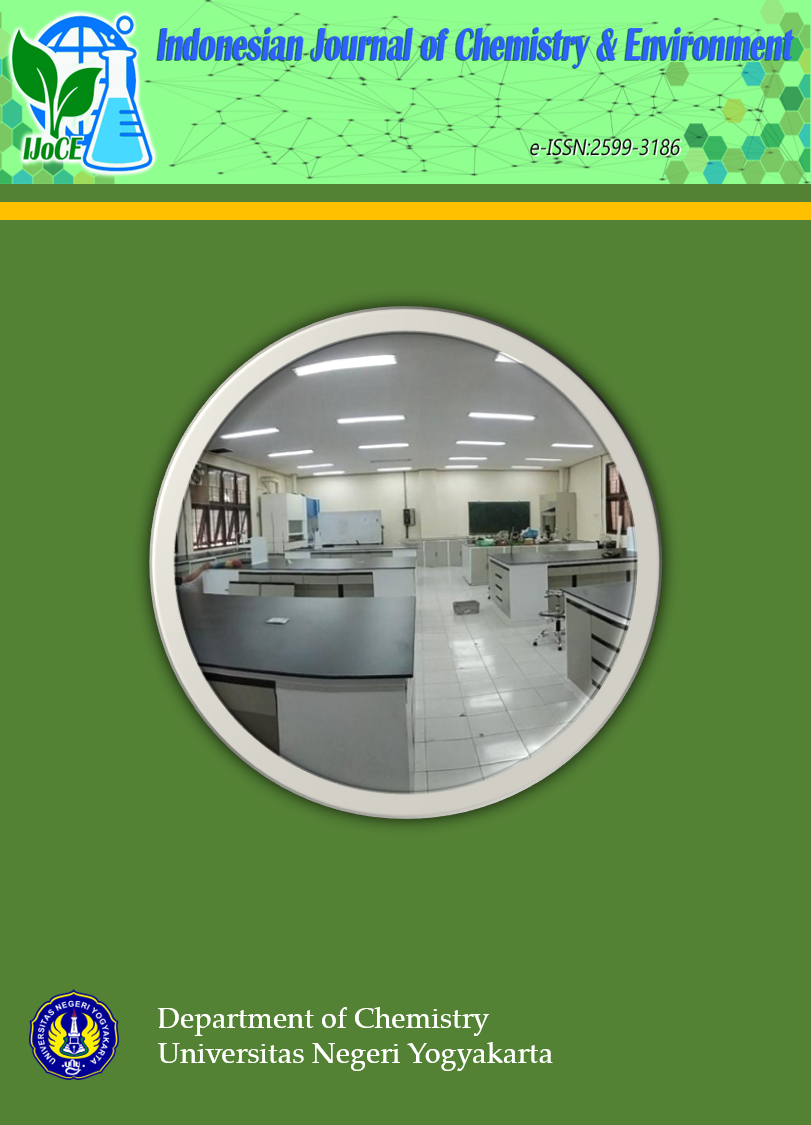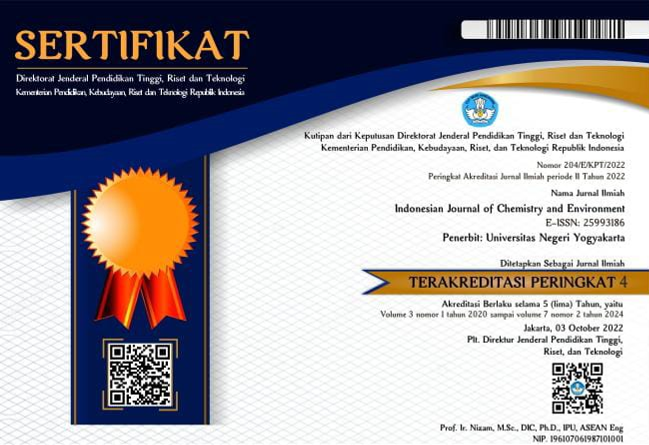Adsorption of Cu(II) and Zn(II) on Liquid Waste of Electroplating Home Industry using Silica based Adsorbent Prepared from Glass Waste
DOI:
https://doi.org/10.21831/ijce.v2i1.30290Abstract
This study aims to (1) knowing the optimum pH and adsorption contact time of Cu(II) and Zn(II) ions in liquid waste of electroplating by silica gel prepared from glass waste, and (2) knowing the adsorption of Cu(II) and Zn(II) ions in liquid waste of electroplating by silica from glass waste. Synthesis of silica gel using sol gel method. In this method, a powder of glass waste is reacted with sodium hydroxide solution to form sodium silicate. Hydrochloric acid solution was added into the sodiumsilicate to form silica gel. Adsorption of Cu(II) and Zn(II) metal ions was done by batch method at various pH and contact time. The experiments shows that (1) the optimum pH and the optimum contact time for Cu(II) adsorption was 7 and 3 hours, therefore the optimum pH and the optimum contact time for Zn(II) was 8 and 3 hours, (2) the adsorption effectiveness of Cu(II) and Zn(II) in liquid waste of electroplating by silica from glass waste occurred in pH 7 for 3 hours were 99.9300% and 95.4200%.
Downloads
Published
2020-02-21
How to Cite
[1]
Saputri, Y.P. and Priyambodo, E. 2020. Adsorption of Cu(II) and Zn(II) on Liquid Waste of Electroplating Home Industry using Silica based Adsorbent Prepared from Glass Waste. Indonesian Journal of Chemistry and Environment. 2, 1 (Feb. 2020), 7–12. DOI:https://doi.org/10.21831/ijce.v2i1.30290.
Issue
Section
Articles
Citation Check
License
Authors who publish with this journal agree to the following terms:
- Authors retain copyright under a Creative Commons Attribution–ShareAlike License (CC BY SA) that allows others to share: copy, and redistribute the material in any medium or format, Adapt: remix, transform, and build upon the material, for any purpose, even commercially.
- Authors are able to enter into separate, additional contractual arrangements for the non-exclusive distribution of the journal's published version of the work (e.g., post it to an institutional repository or publish it in a book), with an acknowledgement of its initial publication in this journal.
- Authors are permitted and encouraged to post their work online (e.g., in institutional repositories or on their website) prior to and during the submission process, as it can lead to productive exchanges, as well as earlier and greater citation of published work.










